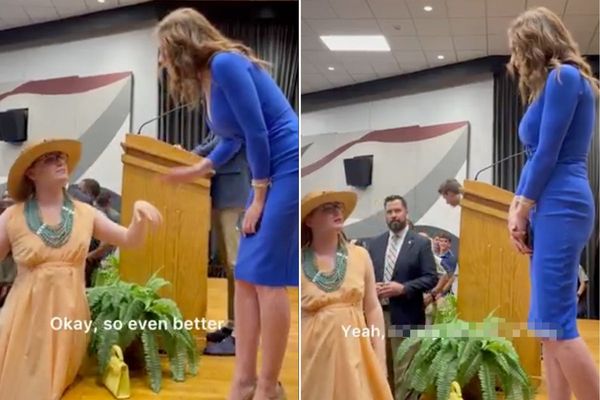The eSafety Commissioner has abandoned the legal case to try to force X – formerly Twitter – to remove footage of the April stabbing attack on a Sydney bishop from the platform worldwide.
This follows a federal court ruling in May rejecting eSafety’s argument for a ban globally. The judge ruled such a ban would not be a “reasonable” step because it would likely “be ignored or disparaged in other countries”, and took issue with the attempt to regulate the global internet. eSafety had argued for a continuation of an earlier injunction in the case.
Elon Musk’s X blocked the video for Australian audiences as a result of the commissioner’s order but refused to impose a wider ban.
Musk has challenged the validity of the commissioner’s order in the Administrative Appeals Tribunal.
In a statement on Wednesday the commissioner, Julie Inman Grant, said she had decided to discontinue the federal court proceedings and instead welcomed the opportunity for an independent review by the Administrative Appeal Tribunal of her decision to issue a removal notice.
“Our sole goal and focus in issuing our removal notice was to prevent this extremely violent footage from going viral, potentially inciting further violence and inflicting more harm on the Australian community. I stand by my investigators and the decisions eSafety made.
"Most Australians accept this kind of graphic material should not be on broadcast television, which begs an obvious question of why it should be allowed to be distributed freely and accessible online 24/7 to anyone, including children,” she said.
Inman Grant said a key concern for her had been “the ease by which children were able to access this extremely violent stabbing video on X.
"As the national online safety regulator, I expect responsible companies to be taking action in relation to this type of content.”
Her announcement came as News Corp Australasia Executive Chairman Michael Miller strongly attacked big tech companies and said they should made to pay “a social licence.”
“This social license would be a package of laws and requirements that Tech monopolies would need to meet if they want access to Australian consumers,” he said.
“Under this license, the Australian government would be able to make the platforms liable for all content that is amplified, curated, and controlled by their algorithms or recommender engines - no hiding behind Section 230 in Australia.
"The licence should require that each platform has an effective consumer complaints handling system, including call centres contactable by telephone with expert staff in Australia.”
Miller said the licence should also include a contribution to the money being spent on mental health problems and a requirement to honour the media bargaining code for compensating publishers and media companies for using their content.
He said penalties should include crime sanctions for companies and executives that agreed to the licence but then broke the rules.
They should also include “the power to ultimately block access to our country and our people if they refuse to play by our rules,” Miller told the National Press Club.
“Companies wanting to do business here also have to meet our standards and sign up to our rules, laws and expectations. But the global tech monopolies that have changed our lives and our nation choose not to meet those standards.
"They refuse to play by our rules. These Tech giants – especially social media networks such as Meta, TikTok and X – operate outside our legal system.
"We know the collective damage they cause – to our young and elderly, businesses, big and small, to our democracy, and to our economy.
"How long will Australia allow them to operate as a protected species? It’s been long enough.”
Michelle Grattan does not work for, consult, own shares in or receive funding from any company or organisation that would benefit from this article, and has disclosed no relevant affiliations beyond their academic appointment.
This article was originally published on The Conversation. Read the original article.







